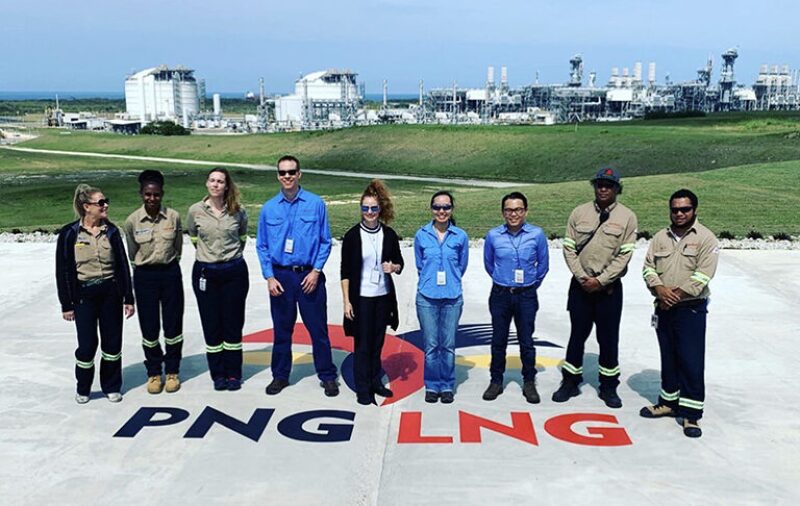
I am both sad and joyous that this will be my last JPT column as your SPE President. I am sad because this signals that my journey as president is concluding, and I am joyous because the time it took to write these columns can be put toward other ambitions such as improving my golf game or my skeet skills. Trust me, those items are in dire need of improvement!
Members often ask me if I am disappointed with how the latter portion of my presidency was affected by the pandemic and the crash of oil prices. To be honest, I am not disappointed. I was able to visit many sections as President-Elect and speak at many events; however, the role of SPE President is much greater than that. This time was critical to serve as chair of the SPE Board and guide our society through an inflection point, requiring us to anticipate how to deliver on our mission to our members in a post-pandemic world. Compounding the complexity is SPE’s worst financial crisis in its history due to mass event cancellations, postponements, and loss of sponsorships. If ever there was a time to lead the society through an unprecedented challenge, it is now. I am grateful to be at the helm during these times. With a resilient board of directors and dedicated SPE staff by my side, I am eager to help steer SPE out of these very rough waters. Ironically, many board and staff members became closer while working remotely. We were able to “visit” one another’s homes during our calls, see each other’s casual attire, and even “meet” a few wandering pets who occasionally appeared onscreen.
When I accepted the presidential gavel at the conclusion of the 2019 ATCE, I challenged the board committees, SPE staff, and our members to strengthen five core areas of our society as part of a campaign I called “SPE Strong.” The phrase and its adaptation “SPE Stay Strong” have been used in messaging hope and guidance to our members.
As I am writing this, I still have approximately 4 months left in my presidency and nearly 1.5 years on the board to accomplish all my goals. However, I will use this opportunity to share the status of each goal and the pandemic’s impact on it.

Strengthen the Quality of our Technical Content
While I raised the issue of technical quality in our offerings, there were some initiatives already underway. More program committee members are taking responsibility for working with authors to improve the quality of papers and presentations prior to publication. We are now able to track the number of papers flagged for recommended revision, which will serve as a benchmark for monitoring progress on quality improvement.
The pandemic has not slowed down the number of submissions for our peer-reviewed journals, and I am proud to announce that the number of days for a paper to complete peer review has been reduced dramatically. This year to date, the time papers spend in peer review has declined by 40% compared to 2019. When data on journal citations were recently released, it was clear that SPE’s journals continue to positively impact industry research. While I am encouraged that this will attract more authors to submit their papers for publication in one of SPE’s peer-reviewed journals, I am concerned that our current roster of technical reviewers may be overloaded. When the call for volunteer reviewers opens in 2021, I encourage you to consider sharing your expertise as a reviewer. I have been a reviewer for many years and find it rewarding.
In my November 2019 column, I wrote that one of my objectives in strengthening technical quality was to establish methods by which to track the technical quality of SPE’s published and presented content. We have yet to complete this challenging task, and while there may not be a quantitative method, I am adamant that we need to establish, at minimum, a baseline from which we can monitor trends.
Strengthen the Tools and Methods We Use To Disseminate Knowledge to Members
My objectives in this area were to create and elevate existing initiatives to provide quality content available via print, video, and audio. I also challenged SPE to deliver content in new formats and become more engaging and consumable for our current and future members. Since much of this work was underway early last year, we were able to launch several new content delivery formats to our members at the start of the pandemic.
The SPE Podcast series, which launched at the 2019 ATCE, has over 38 podcasts (and growing) with over 28,000 downloads as of late June. The SPE Stay Strong video series, featured on the SPE app, was launched in May and now features 32 short videos on technical and nontechnical topics, such as Aaron Burton’s instructional series on hydraulic fracturing. The SPE app is a gateway for our members to access SPE content, participate in discussion boards, and join technical communities. A new version of the app, allowing members to customize their content feed, is expected to launch soon. We have utilized SPE’s social media platforms for the new SPE Live program, which has allowed us to live-stream panel discussions and interviews globally. The feedback from our members on these new initiatives has been extremely positive, and we continue to develop strategies to ensure we build on this success.
Presentation videos are also beginning to appear in OnePetro. When OTC 2020 was canceled, many authors recorded their presentations, which were later added to accompany the OnePetro manuscripts. Video presentations look to be an increasing trend as our events become more virtual, providing the option to read the paper, listen to the presentation, or both. As SPE amasses more video content, we are planning to implement a new multimedia platform to make it easier for members to filter and locate what they are seeking.
While we have managed to launch these initiatives in a short period, I am championing even more micro-learning opportunities for our members throughout the rest of my board term.
Strengthen the Membership of Core Disciplines
I am excited to see that we continue to strengthen the content and activities of petroleum engineering’s core disciplines and fundamentals. At the June board meeting, a new technical section covering artificial lift and deliquification was approved, and a new engagement hub pilot for the drilling discipline is under development. Most importantly, our virtual live and on-demand events, panels, and webinars can reach our members in field locations. Now, all SPE members, regardless of their location and time zone, can benefit from these knowledge exchanges.
Strengthen the Knowledge Transfer in Unconventional Resources
The unconventional shales are crucial to our industry being able to deliver on future energy demand. While knowledge sharing within the US shale players is ongoing, there was minimal dialogue and technical knowledge transfer on a global scale. I focused on the Vaca Muerta, which has the potential for Argentina to realize energy security. In March, a Vaca Muerta strategic discussion occurred between local stakeholders and SPE technical directors to understand the development challenges and discover ways SPE could assist. While that session was small in attendance due to COVID-19 restrictions, it was successful, and I hope SPE can repeat this format for other unconventional basins globally.
Strengthen the Feedstock of Incoming Talent Into our Industry
Of my five focus areas, attracting and strengthening incoming talent, has been the most challenging, even before the effects of the global pandemic. We may need to see what our industry will look like post-COVID-19 and the impact on university enrollments before we can understand the new level of difficulty in attracting and retaining our future innovators.
Leadership is not wielding authority; it’s empowering people.
SPE is a member-driven organization. During my time as president, it was important that all members’ voices be heard and not overshadowed by my own. You don’t have to be SPE President, a committee chair, or officer to implement changes to our society that increase your membership’s value. Twenty years ago, the industry’s artificial lift knowledge was mainly shared at non-SPE events, and I made it my mission to change that. It started small by offering to lead a small local workshop, and it has evolved into a global artificial lift conference series. Today, I am proud of the artificial lift content and events now available within SPE. It started with a young member not just speaking out but stepping up to be a champion.
I am proud to be part of a society with so many strong leaders, contributors, and champions within its ranks. As I traveled the globe to engage with our membership, my pride in being a petroleum engineer and professional in the oil and gas industry grew with each visit. I want to thank all the sections and chapters that hosted me, and I pledge to keep my promise to meet with sections where visits were canceled due to the pandemic. I want to thank our SPE staff from all our regional offices for their constant efforts to implement and maintain the programs and create the tools identified in SPE’s strategic plan. I also want to express my gratitude to my employer, Occidental Petroleum, for its steadfast support and understanding throughout my journey as SPE President. It is one thing for an individual to see the value that SPE provides in terms of competency development, but it is even better to work for a company that recognizes it as well. As I worked to make our society stronger, I, too, have gained strength from this memorable experience.

